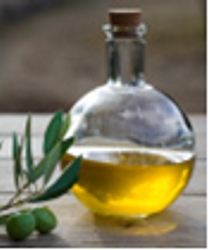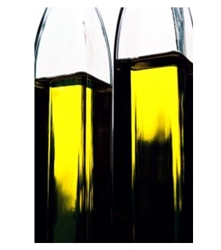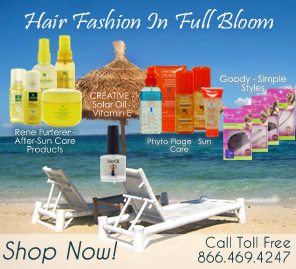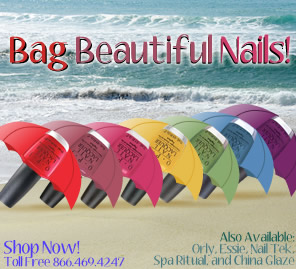|
||||||||||
 |
|
| February 25, 2013 | To ensure delivery of this email, please add newsletter@hairboutiquemedia.com to your contacts. |
Aromatherapy For Trichotillomania  This Week's 20% Off Coupon: VITALITY20 Aromatherapy may offer a source of relief to some people dealing with trichotillomania, pronounced Trik-A-Til-A-May-Nee-a. Trichotillomania, also known as Trich, is the compulsive urge to pull out (and in some cases, eat) one’s own hair leading to noticeable hair loss, distress, and social or functional impairment. It’s classified as an impulse control disorder by DDM-IV and is often a long term hair related challenge. It may be challenging in some situations to treat. Note: The Diagnostic and Statistical Manual of Mental Disorders (DSM) published by the American Psychiatric Association provides a common language and standard criteria for the classification of mental disorders. The DSM is used in the United States and to various degrees around the world. It’s used or relied upon by clinicians, researchers, psychiatric drug regulation agencies, health insurance companies, pharmaceutical companies, and policy makers. Benefits Of Aromatherapy For Hair Pulling Issues Aromatherapy may be helpful in relieving the symptoms of trichotillomania. Aromatherapy has been proven through clinical trials to help relieve a range of conditions. As an example, a randomized, double-blind, clinical trial published in the May 2012 issue of The Journal of Obstetrics and Gynaecology Research by Ming-Chiu Ou and colleagues showed that a formula consisting of essential oils was sufficient to dramatically reduce the pain associated with menstrual cramping. Trichotillomania Causes And Pathophysiology
Trichotillomania has a high overlap with post traumatic stress disorder, and some cases of trichotillomania may be caused by stresses. Another school of thought emphasizes hair pulling as addictive or positively reinforcing as it is associated with rising tension beforehand and relief afterward. A neurocognitive model based upon the notion that the basal ganglia plays a role in habit formation and that the frontal lobes are critical for normally suppressing or inhibiting such habits identifies trichotillomania as a habit disorder. Aromatherapy Treatment Options Aromatherapy massage, baths, topical applications and inhalers may act synergistically with essential oils to reduce the symptoms of trichotillomania. It’s important to note that aromatherapy may provide only immediate, not long-lasting relief. Inhalation of the appropriate essential oils may or may not be as effective as massage, topical application or even baths infused with aromatherapy. While some individuals may see definable results and relief, there is no guarantee that aromatherapy will work for everyone equally. Trichotillomania Relief Oil Formula #1 Aromatherapy Lamp Or Diffuser Try this anti-anxiety, anti-depression formula in an aromatherapy lamp or infuser. Avoid direct application to the eyes, nose and mouth. Mix together the following all natural essential oils: 3 drops of Allspice-Leaf Oil Mix together the following non-synthetic oils for an aromatherapy lamp: Trichotillomania Relief Oil Formula #2 Mix 2 drops of Allspice-Leaf Oil Blend all the essential oils (EO) in a pure jojoba base and pour into a warm bath. Trichotillomania Relief Oil Formula #3 Aromatherapy Diffuser Mix 8 drops of Rosewood Oil This diffused mix of essential oils will relieve the blues and mild depression. Listed below is what science shows about each essential oil:
Note: In several studies, application of some sources of bergamot oil directly to the skin was shown to have a concentration-dependent photo toxic effect of increasing redness after exposure to ultraviolet light (due to the chemical bergapten, and possibly also citropten, bergamottin, geranial, and neral). This is a property shared by many other citrus fruits. Bergapten has also been implicated as a potassium channel blocker Summary – Aromatherapy For Trichotillomania Other complementary natural remedies which have shown promise for trichotillomania are acupressure, acupuncture, homeopathy, flower essence therapies, rose tea, transcutaneous electrical nerve stimulation (TENS), dietary changes and behavioral interventions. If you suffer from severe trichotillomania symptoms, consult a physician and/or therapist for proper diagnosis. Utilizing aromatherapy may offer some assistance with trhichotillomania symptoms. Image courtesy HAAP Media |
| If you would like to consult with Karen personally about any of your health and beauty questions, please see our Ask Karen page. We would love your feedback about this newsletter! Share your thoughts and ideas with us! |
 |
 |
 |
 |
 |
 |
| Copyright 1997-2011, hairboutique.com, All Rights Reserved. Terms of Service, Privacy Statement, Advertise, Contact Us, Press |
| Please note that you are receiving this mail because in the past you signed up for the HairBoutique.com mailing list. This mailing is in full compliance with U.S. Federal requirements for commercial e-mail under bill s.1618 Title 111, Section 301, Paragraph (a) (2) (c) passed by the 105th U.S. Congress. |



 Anxiety, depression and obsessive–compulsive disorder are more frequently encountered in people with trichotillomania.
Anxiety, depression and obsessive–compulsive disorder are more frequently encountered in people with trichotillomania. depression and anxiety, especially when mixed with soothing Lavender and Bergamot oils. It can also help lift the spirits and eliminate listlessness.
depression and anxiety, especially when mixed with soothing Lavender and Bergamot oils. It can also help lift the spirits and eliminate listlessness.
